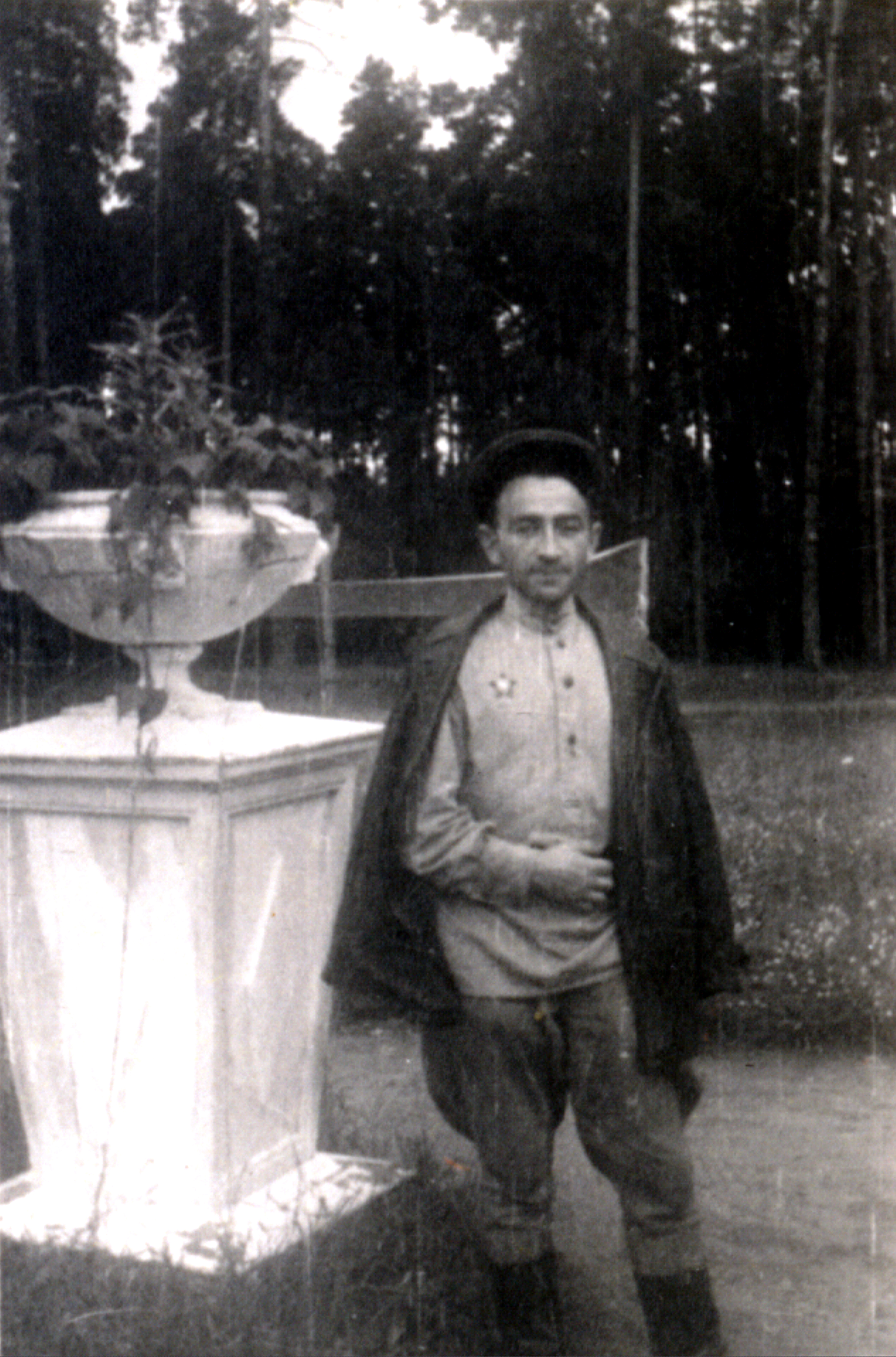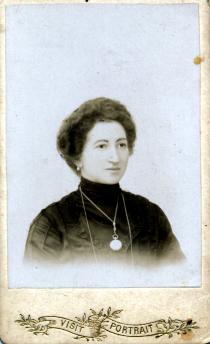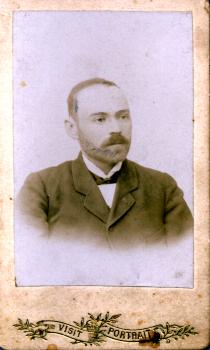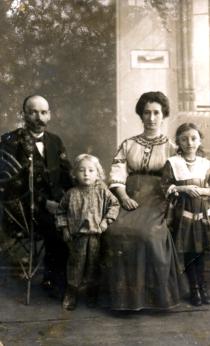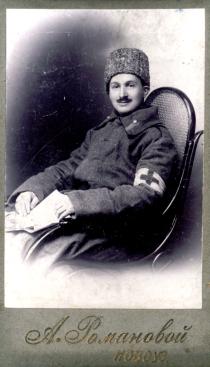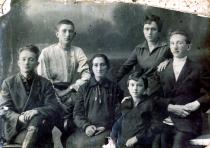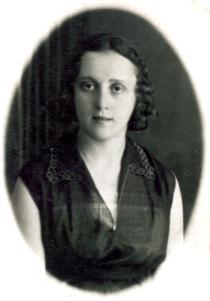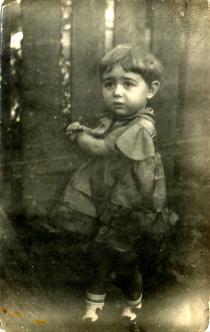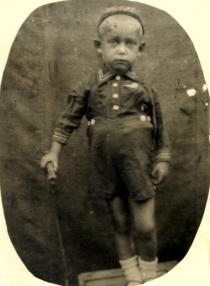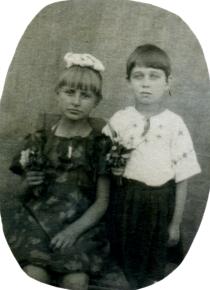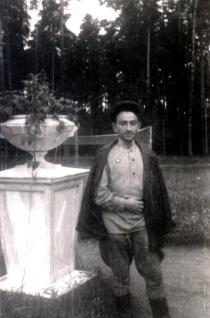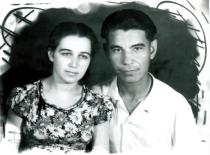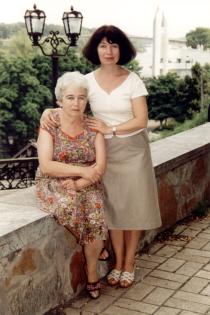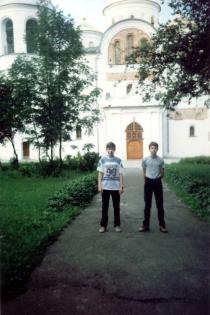This is my father Boris Braverman photographed during the war in 1944. He sent this photo to us when we were in evacuation.
My father, Berko Braverman, was born in 1907. In the 1920s he changed his name to Boris, a Russian name [common name]. My father studied in cheder and finished two or three years in a Jewish elementary school. After his mother's death, he didn't continue his studies. However, since he was curious and gifted, he read a lot to educate himself. Grandfather Ghil taught him the basics of Yiddish and Hebrew. My father could read the Torah and the Talmud, but he was more interested in fiction. When he turned 12 he became an apprentice to a bookbinder. Of course, he read whatever he could lay his hands on. Later he worked as a shop assistant in a bookstore and became a very skilled expert in book supplies. Like many other young Jewish men my father got very fond of revolutionary ideas and dreamed of building a communist society. He joined the Komsomol, read a lot of classical Marxism-Leninism literature and sincerely believed in communist ideas. He joined the Communist Party in 1929. At one of the party meetings my father met my mother, Revekka Ostrovskaya, who had been involved in party activities for a few years.
They fell in love with one another and got married in 1931. Of course, a Jewish wedding was out of the question. They just had a civil ceremony and no wedding party. I was born on 16th October 1933. My communist parents named me Engelina, after one of the leaders of the world proletariat, Engels. They called me Lina at home.
My parents had many friends that visited us on 1st May and on October Revolution Day. My parents spoke Russian, but switched to Yiddish when they didn't want me to understand the subject of their discussion. However, my father often responded in Russian since he had forgotten much of his Yiddish. By that time he communicated in Russian for the most part. He read in Russian a lot and spoke Russian with his colleagues. Russian was the common language of communication.
I don't remember 1937 when the arrests began. Many party officials and common citizens were arrested and executed or perished in Stalin's camps. My mother told me in the 1950s that my father, who was working in the scientific sector of the town party committee, was fired and expelled from the Party in 1937. Fortunately, they didn't go any further than expel him. My father went to work in a bookstore. He didn't even apply to have his party membership restored. I believe he got disappointed with the party ideals.
We heard about the war on 22nd June 1941 at noon, when Molotov spoke on the radio. On the following day my father received a call-up from the military office. He joined the army on 26th June. We left in late August 1941 when Chernigov was bombed and many houses were on fire. I missed my father, my town, my home and friends when we were in evacuation.
We stayed in the settlement of Gulbach until the end of the war. I remember 9th May 1945, Victory Day. All people ran into the streets, kissing, crying and hugging each other. My father came to take us home shortly after the victory. He was still in the army. He was a writing clerk in a tank brigade. He went as far as Moscow with us and from there he returned to his unit. We returned to Chernigov. Aunt Genia's husband's relatives lived there and we temporarily moved in with them. We slept on the floor, but after all we had gone through in evacuation we were immune to hardships.
Our house was ruined. My father demobilized and we rented a 10-square meter room where we lived with Aunt Genia, whose husband perished at the front, and her daughter. My father went back to work at the bookstore and my mother became a secretary of the party organization in a hospital.
